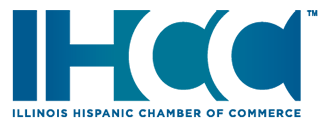
The Small Business Administration (SBA) is dedicated to helping sustain our nation’s small businesses and to supporting their tens of millions of employees.
During these unprecedented times brought on by the COVID-19 global pandemic, SBA has worked tirelessly and closely with Congress, with borrowers, and with lenders of all sizes – including regional and community banks, Farm Credit System lenders, credit unions, fintechs, community development financial institutions (CDFIs), and minority depository institutions (MDIs) – to maximize access to the Paycheck Protection Program (PPP or Program).
Building on the success of the first round of PPP, SBA is continuing to address potential barriers to access to capital for minority, underserved, veteran, and women-owned business concerns.
In the Economic Aid to Hard-Hit Small Businesses, Non-Profits, and Venues Act (Economic Aid Act), the US Congress have set aside funds for new and smaller borrowers, for borrowers in low- and moderate-income communities, and for community and smaller lenders.
These set asides include:
- $15 billion across first and second draw PPP loans for lending by community financial institutions;
- $15 billion across first and second draw PPP loans for lending by Insured Depository Institutions, Credit Unions, and Farm Credit System Institutions with consolidated assets of less than $10 billion;
- $35 billion for new first draw PPP borrowers;
- $15 billion and $25 billion for first draw and second draw PPP loans, respectively, for borrowers with a maximum of 10 employees or for loans less than $250,000 to borrowers in low-or moderate-income neighborhoods. SBA has determined that at least 25 percent of each of those set-asides will go to each one of the groups: loans to borrowers with a maximum of 10 employees and loans less than $250,000 to borrowers in low-or moderate-income neighborhoods.
To efficiently and effectively implement the Economic Aid Act and to ensure increased access to PPP for minority, underserved, veteran, and women-owned business concerns, SBA is undertaking the following steps:
- Accept PPP loan applications only from community financial institutions for at least the first two days when the PPP loan portal re-opens;
- Direct Lender Match borrower inquiries to small lenders who can aid traditionally underserved communities;
- Match small businesses through Lender Match with Certified Development Companies (CDCs), Farm Credit System lenders, microloan intermediaries, and traditional smaller asset size lenders;
- Continue setting aside dedicated hours to process and assist our smallest PPP lenders with their PPP loans;
- Continue to strongly encourage CDFIs and minority-, women-, veteran-, and military-owned lenders to apply to become PPP lenders. SBA will give full and prompt consideration to these applications to become PPP lenders consistent with program guidelines, including in cases where the lender does not meet all of the requirements listed on the updated SBA Form 3507;
- Promote awareness of these policies and procedures via traditional media methods, SBA social media accounts and guidance to lenders before the formal opening of SBA’s loan systems;
- Continue to use SBA’s 68 district offices and network of SBA Resource Partners to further create awareness among the public about these approaches. Minority, underserved, veteran, and women-owned businesses in Illinois that encounter difficulties in obtaining a PPP Loan should contact Illinois Hispanic Chamber of Commerce (IHCC) for assistance.
Register to apply for Paycheck Protection Program Round 2 funds
All types of information requests are answered through [email protected]. Please do not hesitate to email us.
Be patient, we are receiving a high volume of emails and our response may take some time.
At the same time, we are publishing relevant information, in IHCC’s blog, so our members and associated companies have better tools to withstand the economic crisis unraveling due to the spread of the virus.

